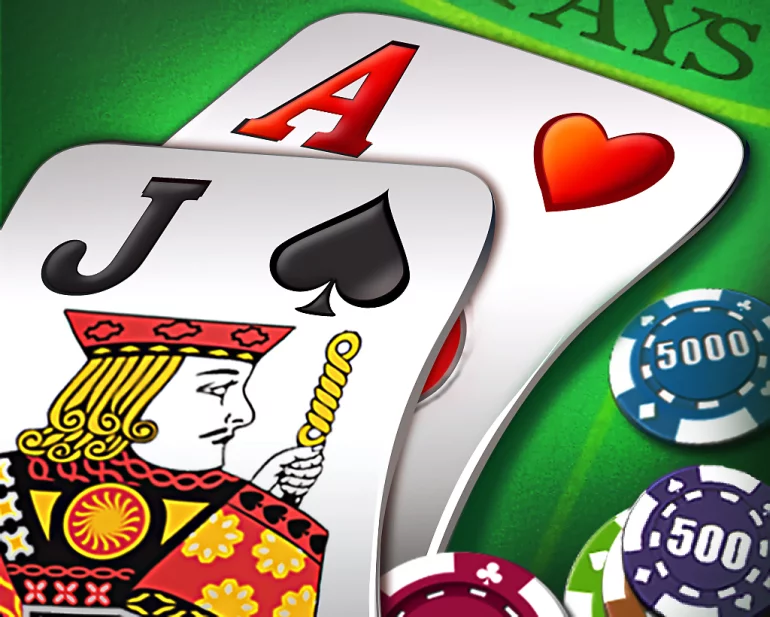
In blackjack, few hands are as challenging to play as the dreaded sixteen. With a total that is dangerously close to busting, yet still far from a strong hand, it’s no surprise that many players find themselves frustrated when they draw this total. The decision of whether to hit, stand, or surrender can feel overwhelming, especially since each choice carries its own risks and rewards.
Understanding how to play sixteen effectively is crucial for any blackjack player, whether you’re just starting out or aiming to refine your strategy. In this article on Casinoz, we’ll break down the best approaches for handling sixteen in blackjack, based on established strategies and the dealer’s upcard, to help you make informed decisions and minimize your losses.
Understanding the Value of Sixteen
In blackjack, the total of sixteen is often referred to as a "stiff hand." This is because it’s a weak total that leaves you in a vulnerable position. A hand with a value of sixteen can either be a hard sixteen or a soft sixteen, and understanding the difference is essential for determining the best course of action.
- Hard Sixteen: A hard sixteen is a hand that doesn’t contain an Ace or contains an Ace that is counted as 1. For example, a hand with a 10 and a 6, or a 9 and a 7, would both be considered hard sixteen.
- Soft Sixteen: A soft sixteen is a hand that includes an Ace counted as 11. For example, an Ace and a 5, or an Ace and a 4, would both be considered soft sixteen. The flexibility of the Ace in these hands gives you more room to maneuver, especially when deciding whether to hit or stand.
The main challenge with a hard sixteen is the risk of busting if you draw another card. On the other hand, a soft sixteen gives you a little more flexibility, as you can take an additional card without the same immediate danger of going over 21.
You can learn the game rules and grasp the basic strategy by playing free online blackjack.
| Name | Soft | Return to player | ||
|
|
99.78% | |||
|
|
99.71% | |||
|
|
99.7% | |||
|
|
99.69% | |||
|
|
99.65% | |||
|
|
99.6% | |||
|
|
99.59% | |||
|
|
99.54% | |||
|
|
99.54% | |||
|
|
99.54% |
Basic Strategy for Sixteen
When it comes to playing sixteen, the basic blackjack strategy serves as your best guide. It is based on extensive statistical analysis and is designed to minimize the house edge by advising you on the optimal move in any given situation.
Here are the general rules for handling sixteen.
Hard Sixteen
- Stand if the dealer’s upcard is between 2 and 6. This is because the dealer has a higher chance of busting with these low cards, and standing gives you the best chance to win.
- Hit if the dealer’s upcard is 7 or higher. Since the dealer has a stronger hand with cards like 7, 8, 9, 10, or Ace, hitting gives you a better chance of improving your hand.
- Surrender (if allowed) when facing a dealer’s 9, 10, or Ace. The probability of the dealer having a strong hand is high, and surrendering minimizes your loss in these scenarios.
Soft Sixteen
Always hit, regardless of the dealer’s upcard. The Ace provides more options, so you’re less likely to bust. Hitting is the best way to improve your hand without too much risk.
When to Surrender
Surrendering is a strategic option that allows you to forfeit half of your bet in exchange for keeping the other half. While it may seem like an unappealing choice, surrender can sometimes be the best way to minimize your losses.
If you're dealt a hard sixteen and the dealer has an upcard of 9, 10, or Ace, surrendering is statistically the best option. These cards suggest that the dealer has a strong chance of winning, and by surrendering, you cut your losses instead of taking the risk of busting or getting beaten by the dealer’s hand.
It’s worth noting that not all blackjack games allow surrendering, so it’s important to know the rules of the game you’re playing.
The Role of Card Counting
For advanced players, card counting can provide valuable insights into when to adjust their strategy when holding a sixteen. Card counting works by keeping track of the high and low cards that have been dealt, helping players determine the likelihood of certain cards remaining in the deck.
When the count is positive (more high cards left in the deck), it may be beneficial to stand on a hard sixteen against certain dealer upcards. On the flip side, if the count is negative (more low cards left in the deck), the player may want to take a riskier move like hitting.
While card counting is not a strategy for beginners, it can be incredibly effective for experienced players looking to gain an edge over the house.
Psychological Challenges
One of the biggest hurdles when playing sixteen is the psychological challenge. The temptation to hit on a hard sixteen, especially when the dealer shows a strong upcard, can be overwhelming. At the same time, the fear of busting makes standing feel like a risky move, even when it’s the correct choice.
Staying disciplined and sticking to your strategy, even when you feel frustrated or anxious, is key. Many players get emotional and deviate from the strategy, but this usually results in losing more money in the long run. A clear understanding of the probabilities and staying calm can help you make the right choices.
Common Misconceptions
There are several myths about how to play a hand of sixteen in blackjack that can lead to poor decisions. For example, some players believe they should always hit when holding sixteen, but this isn’t true in all cases. Similarly, others think standing on a hard sixteen is always a good idea, but this can lead to unnecessary losses when the dealer is likely to have a strong hand.
The key takeaway is that context matters—the dealer's upcard plays a significant role in deciding whether to hit, stand, or surrender.
Practical Examples
Let’s consider some real-life scenarios to illustrate how to handle sixteen:
- Hard Sixteen vs. Dealer’s 10: In this case, hitting is usually the best choice. The dealer has a high chance of having a strong hand, so it’s better to try and improve your hand rather than standing.
- Hard Sixteen vs. Dealer’s 6: Standing is your best bet here. The dealer has a high chance of busting with a 6, so you can afford to stand and hope they go over 21.
- Soft Sixteen vs. Dealer’s 7: Always hit. The dealer’s 7 is a strong upcard, so you need to improve your hand as much as possible.
Here are several reliable online casinos with numerous blackjack games.
Conclusion
Playing a hand of sixteen in blackjack is always a tricky situation, but with the right strategy, you can make informed decisions that give you the best chance to win. Whether you're following basic strategy, using card counting, or simply sticking to the fundamentals, the key is to remain calm and avoid emotional decisions.
By understanding when to hit, stand, or surrender, you’ll minimize your losses and maximize your chances of success at the blackjack table.
























